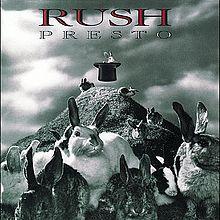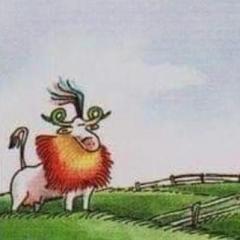-
Posts
9 -
Joined
-
Last visited
Profile
-
Location
New York
Recent Profile Visitors
1,056 profile views
-
Paul Andrew MacLean changed their profile photo
-
 Tallguy reacted to a post in a topic:
Did Jerry Goldsmith really call John Williams “such a snob”?
Tallguy reacted to a post in a topic:
Did Jerry Goldsmith really call John Williams “such a snob”?
-
 JTN reacted to a post in a topic:
Did Jerry Goldsmith really call John Williams “such a snob”?
JTN reacted to a post in a topic:
Did Jerry Goldsmith really call John Williams “such a snob”?
-
.thumb.jpg.a8313269a6b91faa2452000298204458.jpg)
Did Jerry Goldsmith really call John Williams “such a snob”?
Paul Andrew MacLean replied to JTN's topic in JOHN WILLIAMS
Ah, my old picture surfaces again. If only Williams hadn't moved and blurred his face! -
10) The Reivers 9) Jaws 8) Jaws 2 7) Dracula 6) The Phantom Menace 5) Far and Away 4) Raiders 3) Harry Potter and the Sorcerer's Stone 2) Superman: The Movie 1) Harry Potter and the Prisoner of Azkaban
-
 Smeltington reacted to a post in a topic:
Harry Potter Disentchantment
Smeltington reacted to a post in a topic:
Harry Potter Disentchantment
-
.thumb.jpg.a8313269a6b91faa2452000298204458.jpg)
Harry Potter Disentchantment
Paul Andrew MacLean replied to bollemanneke's topic in General Discussion
I remember Warner Bros. pushing to re-cast the kids (I believe after he second film) presumably to be able to spend more time on each subsequent movie -- but that idea was nixed in a hurry. Later, Warners wanted to shift production to Eastern Europe (Hungary if I recall right), but the parents of the three leads -- and Rowling -- adamantly resisted this. Chris Columbus' films are to me the most appealing. He accentuates the fantasy, adventure and sentiment with an approach I'd describe as "Spielberg meets Dickens". I always felt Columbus was ideally suited to the material, because I have a hard time believing Rowling was not influenced -- even subconsciously -- by Young Sherlock Holmes. John Williams' score of course further establishes the "Spielberg" tone. I like some of the visual panache which Alfonso Cuarron brought to the third film, but don't care for the dour, unsubtle "real world cynicism" he imposes on the movie. He pushes Rowling's (hitherto subtle) comments on bigotry, inequality, animal rights, etc. (as well as the horror elements) to the fore -- at the expense of the magic and wonder. The result is more social justice sermon than fantasy. Critics hailed Cuarron's movie as "more mature", but think it has didactic and pretentious moments (plus I dislike the pointless continuity breaches with the previous films — the street clothes, completely altering Tom and Professor Flitwick, etc.). And I'll never forgive him for not casting Peter O'Toole as Dumbledore! Mike Newell plays-up the British boarding school experience -- which makes sense, his having been British boarding school boy himself. The book's emphasis on growing-up (in particular how the relationships of boys and girls start to change around the age of 12) is also nicely handled. In terms of interpretation, Newell seems more sympathetic to the Columbus approach of Harry Potter as a fantasy-adventure first and foremost, while retaining some of Cuarron's visual flair. Not a fan of the score though. David Yates' movies were solid -- but they lack the scope of the previous films. I think the fact that Yates had been a TV director, and that the Harry Potter movies are a series to begin with, cause his films to take-on a more perfunctory, "this week's episode" quality. I like his Potter efforts, but I don't feel he brought much to the franchise. -
 Once reacted to a post in a topic:
Harry Potter Disentchantment
Once reacted to a post in a topic:
Harry Potter Disentchantment
-
.thumb.jpg.a8313269a6b91faa2452000298204458.jpg)
Harry Potter Disentchantment
Paul Andrew MacLean replied to bollemanneke's topic in General Discussion
I had no interest whatsoever in Harry Potter until I heard John Williams would be scoring the original film. I had not read any of the books, but I knew that it was the kind of vehicle that would enable him to write a truly memorable score -- and draw him back into the territory which inspired The Witches of Eastwick and Hook. Predictably I loved the score, which remains one of my very favorites of his. I also loved the film, and became a fan of Rowling's entire series (I now own all the books and Blu-rays). I even came close to buying a Gryffindor jumper from the gift shop at Alnwick Castle! In the spirit of this thread's "disenchantment" agenda, I will add I wasn't enamored of the post-Williams scores, which were serviceable, but to me nothing special. I didn't mind other composers stepping up to the plate, but my ideal scenario would have been for Richard Rodney Bennett, Danny Elfman and George Fenton to have scored the "middle movies" with John Williams returning for the finale. Oh well. -
.thumb.jpg.a8313269a6b91faa2452000298204458.jpg)
List of Williams session venues & engineers?
Paul Andrew MacLean replied to Paul Andrew MacLean's topic in JOHN WILLIAMS
Yes actually -- I'm always up for arcane trivia! 😎 Thanks to everyone who responded! -
.thumb.jpg.a8313269a6b91faa2452000298204458.jpg)
List of Williams session venues & engineers?
Paul Andrew MacLean replied to Paul Andrew MacLean's topic in JOHN WILLIAMS
Thanks for your response. However, Mike Ross-Trevor never engineered any of Williams' scoring sessions. Williams recorded Images at CTS Studios, but the engineer was John Richards. -
Does anyone know if there is a list somewhere online (perhaps even on this site) which has a John Williams filmography that includes the recording venue and engineers for each of his scores? The other night I was having a conversation with a friend of mine, who was amazed Temple of Doom and Last Crusade were recorded on the same stage, and I was explaining to him that Bruce Botnick and Dan Wallin have very different techniques. He started asking about more sessions, and I have to admit I couldn't recall who engineered what in a lot of cases (and I don't really feel like pulling out all my albums to provide the information!). So does anyone know of a definitive list? Cheers!
-
 Steve H reacted to a post in a topic:
Do you own the OST album of Return of the Jedi?
Steve H reacted to a post in a topic:
Do you own the OST album of Return of the Jedi?
-
 Smaug The Iron reacted to a post in a topic:
Do you own the OST album of Return of the Jedi?
Smaug The Iron reacted to a post in a topic:
Do you own the OST album of Return of the Jedi?
-
.thumb.jpg.a8313269a6b91faa2452000298204458.jpg)
Is Harry Potter and the Chamber of Secrets underrated?
Paul Andrew MacLean replied to Josh500's topic in JOHN WILLIAMS
I've seen people dismiss the Chamber of Secrets score because they interpreted the music credit as meaning it was a case like "Superman II" -- i.e. merely someone else's adaptation of the first film's score, with no new music (or any input) by John Williams). -
 Jurassic Shark reacted to a post in a topic:
Do you own the OST album of Return of the Jedi?
Jurassic Shark reacted to a post in a topic:
Do you own the OST album of Return of the Jedi?
-
Years ago I read a transcript of an event where George Lucas was answering questions from fans, one of whom asked why the return of the Jedi soundtrack was only released as a single LP. "We didn't think there was enough music to warrant a two-record set" came Lucas' reply. In any case, even with one LP, there could have been better use of that single disc's real estate. I'd have been happy to see "Han Solo Returns" excluded in favor of something more listenable (like "Alliance Assembly"). And while I understand that John Williams put effort into the concert arrangements "Luke and Leia" and "Parade of Ewoks" they are adequately quoted in the end title (plus they were recorded by Charles Gerhardt for the RCA album, as well as by Williams for a Boston Pops album soon after anyway). In answer to the original question, I own the Jedi LP, but never bought the CD, since I found the original album such a disappointment.



